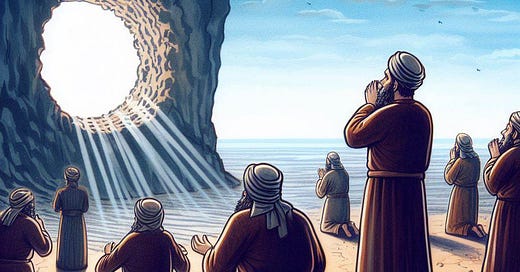I’ve written before about my distaste for the Jonathan Haidt-style embrace of consequentialist religion - the kind that says that, while the truth claims of religion are obviously wrong, periods of near-universal religious observance were periods with more social cohesion and personal meaning, so we should all worship without actual belief. (If you think I exaggerate, click through to find Haidt’s explicit words to that effect.) As has become a common and annoying response to just about anything I write, there was a set of readers who replied by saying, well, Haidt is just one guy, nobody actually thinks this way. At the time I countered that a lot of the “trad Cath” stuff that was popping up seemed to qualify, which was true. (I think those people have mostly moved on to cocaine now, and God bless.) Well, I can now say that there is definitely one other prominent person who believes in worshipping the God-shaped hole, and her name is Ayaan Hirsi Ali.
There is, as the kids say, a lot going on in that essay. As many observers have pointed out, the piece is entirely silent on what most of the world’s Christians throughout history would have taken to be the only salient question - whether Christianity is true, whether the son of a humble carpenter in Judea was in fact born of a virgin as both the son of God and as God Himself, who taught his flock and performed miracles and then gave his own life as sacrifice so that those who believed in his covenant could have eternal life. Hirsi Ali doesn’t appear to go for that stuff. She instead argues that the atheism she once embraced is insufficient to fight back against the Muslim hordes that she believes, oddly, are coming to conquer the world. This was a strange thing to believe in 2001, and is an even stranger thing to believe in 2023. Al Qaeda was never trying to take territory even according to their own statements, and in fairly short order it became clear that they had exploited a very specific security failure to wreak short-term havoc. The
story of ISIS is incredible, in many ways, but then again would have not been possible without the American misadventure in Iraq, and at their zenith they controlled a tiny portion of the Middle East and were opposed even by the most repressive Islamist governments of the region. Against that threat, Hirsi Ali has waged her immortal soul, with hardly a mention of the Father, the Son, and the Holy Spirit in whose name she ostensibly worships.
Anyhow!




